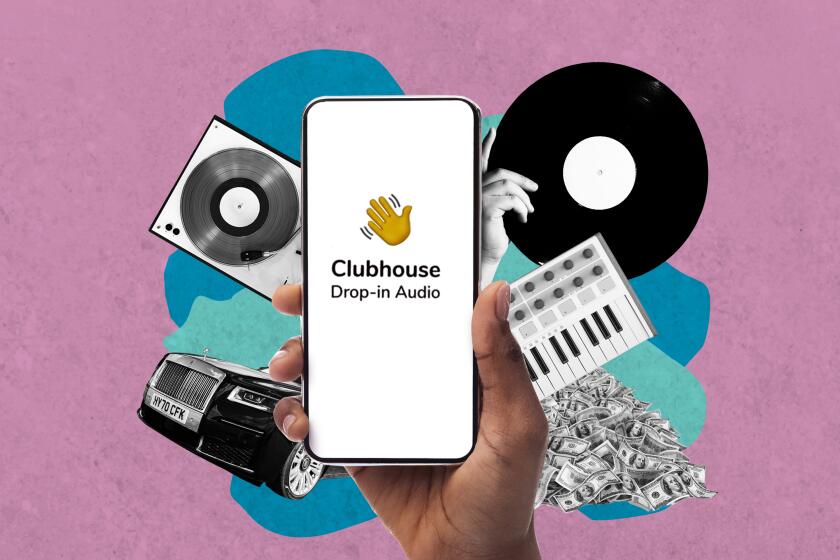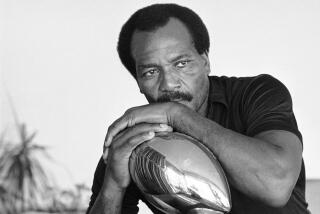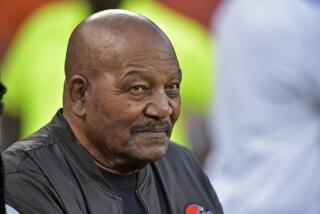Danny Ray, onstage ‘cape man’ for soul great James Brown, dies at 85
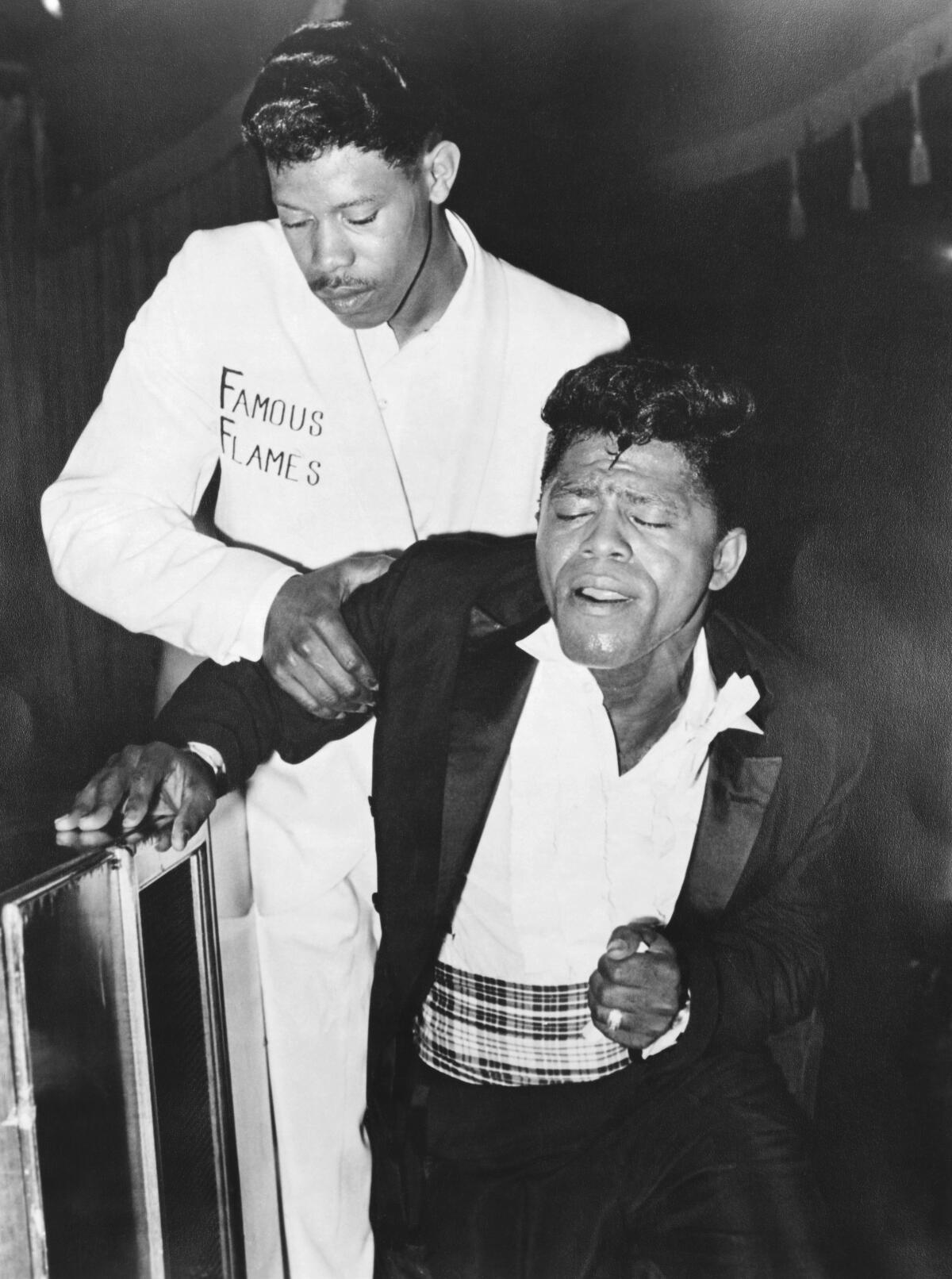
- Share via
The greatest showmen can’t do it alone. They need someone like cape handler Danny Ray, who died Tuesday at age 85, to tend to their mortal needs.
Who takes charge during an onstage emotional breakdown when, for example, soul singer James Brown collapses in a cold sweat and needs his cape? Who picks up the blazer and brushes it off when life overwhelms Brown a second time, then a third?
For more than 45 years, valet Ray rushed to help the Godfather of Soul during that climactic moment, in the process playing a crucial costarring role in Brown’s magnetic stage show. Whenever Brown collapsed with feigned grief during the song “Please, Please, Please,” Ray was there to comfort Brown (just in case he fainted from desperation).
Ray’s death was announced on Wednesday by the James Brown Estate. Describing him in a statement as “the legendary emcee and cape man for James Brown,” the statement called Ray “the second hardest working man in show business.”
The Augusta Chronicle, Ray’s hometown Georgia newspaper, reported that he died from natural causes.
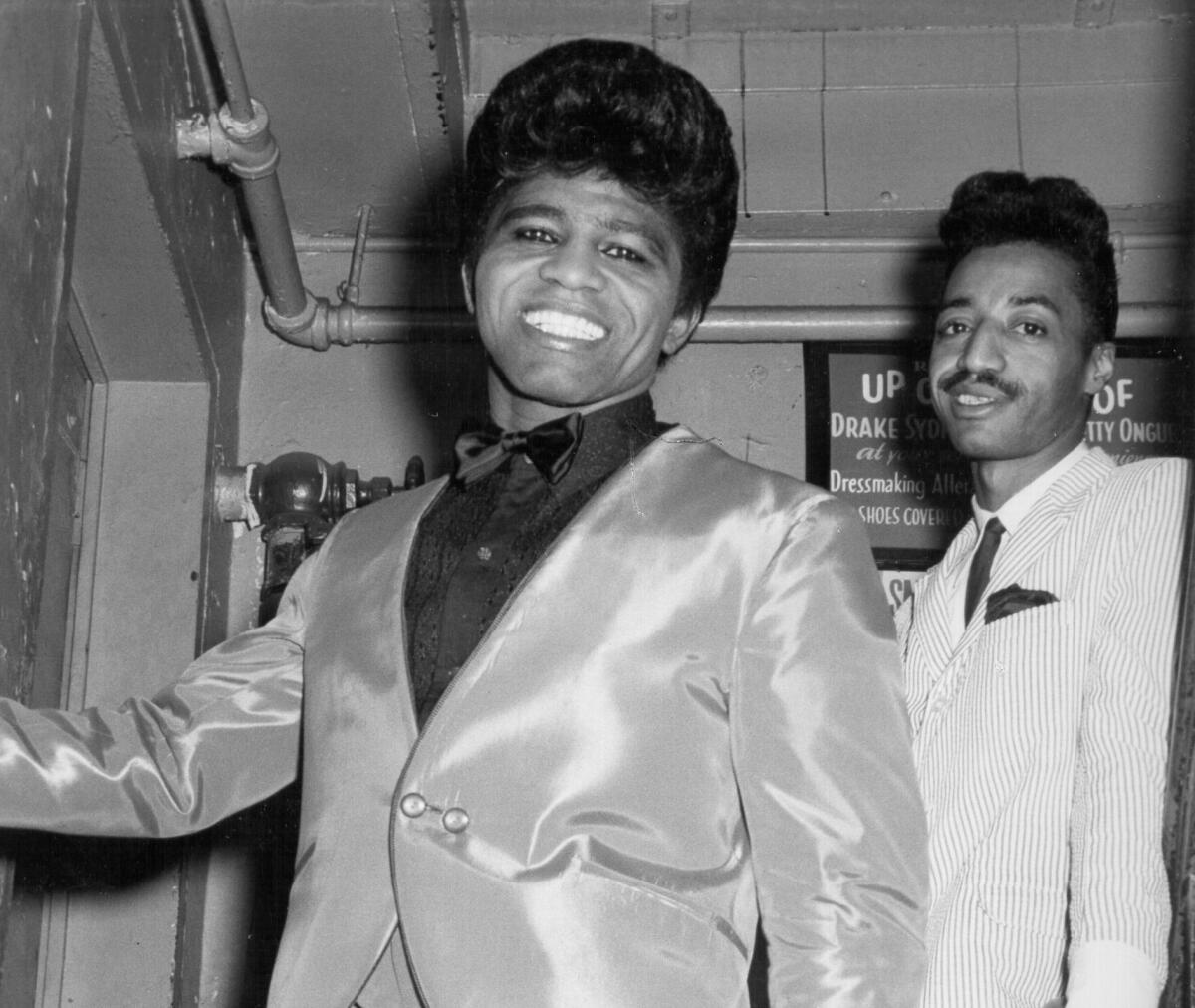
Ray didn’t go to a fancy butler academy but did land his job while in a prestigious venue: the famed Apollo Theatre in Harlem. As recounted in “The One: The Life and Music of James Brown,” RJ Smith’s definitive biography, the Birmingham, Ala.-born Ray moved to New York after leaving the army and started spending nights at the venue as a fan.
“I used to go up to the very top of the Apollo, to the place they call ‘the crow’s nest,’ and watch the show,” Ray told Smith. “To myself I’d say, if I could just get down there.”
Across decades, Cicely Tyson and Miles Davis were the epitome of a glamorous power couple. But behind the scenes, his drug abuse and philandering took its toll.
The sharp-dressed Ray got the chance when Brown hired him to introduce the showman at concerts. After Brown’s band the Famous Flames juiced the audience with an extended instrumental groove, Ray would step to the microphone to raise Brown onto a metaphorical throne and introduce his holiness.
“Right about now, it’s star time. Are you ready for star time?” Ray asked.
But it was as Brown’s valet and costumer that Ray landed his place in American cultural history. According to Brown, professional wrestler “Gorgeous George” Wagner’s ringside dramatics served as inspiration. The well-coifed Gorgeous George, a fancy fellow with golden locks, wore dandy-esque Victorian-era clothes, often including a velveteen cape, as he took to the ring.
Brown’s expansion on the idea brought that brand of melodrama into his “Please, Please, Please” moment, writes Smith, and changed the entire set. “From the first time he used it, the show was altered by the cape; it made him seem bizarre and grandly religious. It made him a victim and a champion, running on currents that alternated weakness with raw power. He said he gave us his all: The cape act showed it, and showed that his all was bottomless.”

Despite what Brown said, Ray had a different recollection of the cape-as-comfort origin story. In his memory, the cape began as a towel with which he used to wrap an overheated Brown after “Please, Please, Please.”
“[H]e’d just be drenched in sweat, and one thing I was supposed to do was hand him a towel,” Ray told Smith, adding that some clubs were so small that side-stage was often outside.
“It was, like, our little joke, at first. I put the Turkish towel on him; he’d kick it off and run back in and sing it some more,” Ray added. “Folks could see it from their seats. People started noticing and it just became a thing.”
Hip-hop stars, executives and creatives flocked to the invite-only audio chat app Clubhouse, giving it instant cache and, ultimately, a $1-billion valuation.
Behind the scenes, Ray was responsible for ensuring a seamless preshow for his charge. “My military training made me punctual. I guess Brown couldn’t find anybody to shine the shoes and clean the five outfit changes he had.”
Ray’s most prominent star turn came in 1964 when, at the Santa Monica Civic Center during the filming of “The T.A.M.I. Show” variety concert, Brown and the Famous Flames ripped through “Please, Please, Please.” On a bill that included sets by the Rolling Stones, the Beach Boys and Leslie Gore, Brown’s wailing plea to a soon-to-be-former lover carried the teenyboppers to a higher realm. Was the singer really falling apart?
In the “T.A.M.I. Show” clip, Ray expresses concern as if he’s Shakespeare’s Balthasar comforting a pale and wild Romeo. As Our Hero drops to his knees — “Please! Please! Please!” — the valet looks genuinely worried. He wraps the cape around Brown, holds him by the shoulder and pats his back. But no. The rejection’s too much to bear. Brown swats off the cape. Ray steps back to allow his boss room to grieve.

James Brown, “Please, Please, Please” on The Tami Show in 1964. His valet, Danny Ray, has died.
When the singer removes another layer, his blazer, Ray gathers it and drapes it over his arm with the cape and steps back again. Brown drops again. Thinking he must be cold — he’s without his blazer! — Ray’s there with the cape and a hug.
Ray wasn’t just Brown’s onstage savior. Behind the scenes, he kept track of Brown’s wardrobe and always made sure that the cape matched the outfit.
“He would tell me the color of the suits, the color of the capes, only a little before the shows,” Ray told Smith. “I kept them safe with me and never let them out of my sight, because I knew what they represented.”
On social media, fans lined up to praise Ray’s role. The Rev. Al Sharpton wrote, “He was like an Uncle to me as I traveled the world years ago w/ The Godfather of Soul. Danny will never be forgotten. Rest in peace and power, family.”
Bootsy Collins, former bassist for James Brown’s early 1970s band the J.B.’s, called Ray a “legend.”
Even after Brown’s death, Ray continued to serve his boss’s needs. A resident, like Brown, of Augusta, Ga., he was present at Brown’s 2006 memorial service, where he draped Brown’s body with a cape embroidered with the phrase “The Godfather of Soul.”
A year later, during a tribute to Brown at the 49th Grammy Awards, Ray hung the cape on a lone microphone.
More to Read
The biggest entertainment stories
Get our big stories about Hollywood, film, television, music, arts, culture and more right in your inbox as soon as they publish.
You may occasionally receive promotional content from the Los Angeles Times.
